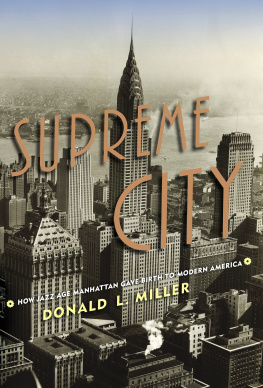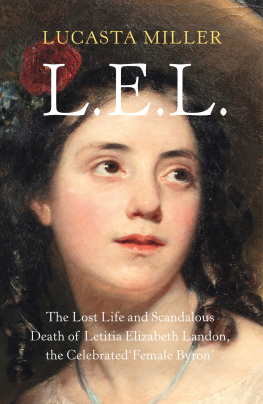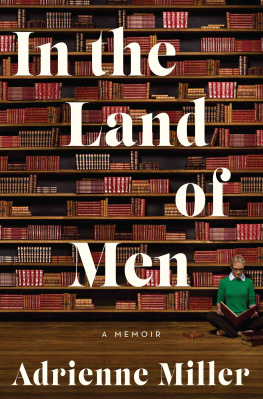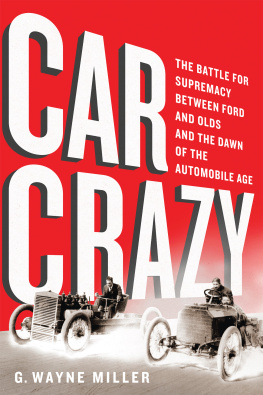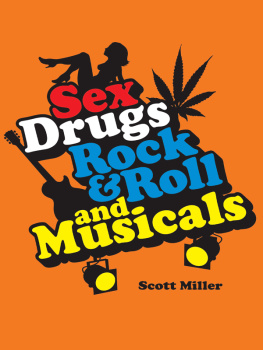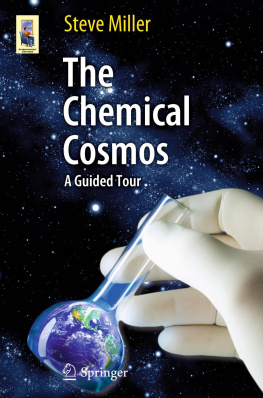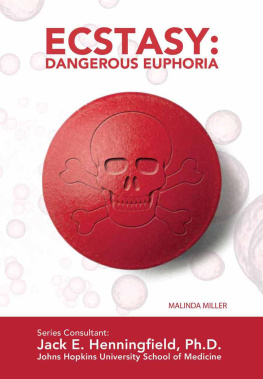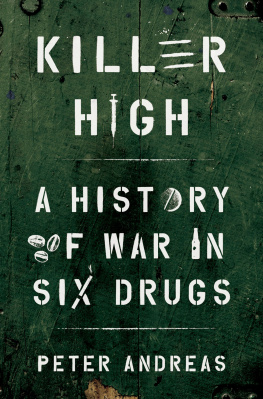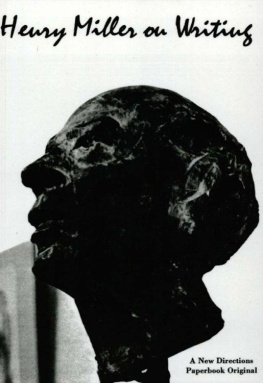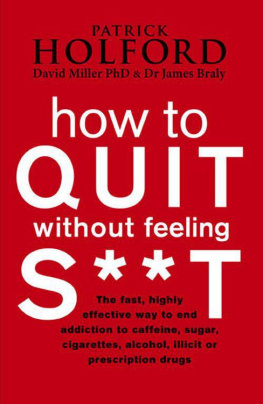Drugged
Drugged
The Science and Culture Behind Psychotropic Drugs
Richard J. Miller, PhD
Alfred Newton Richards
Professor of Pharmacology
Northwestern University
Medical school
Chicago, IL


Oxford University Press is a department of the University of Oxford.
It furthers the Universitys objective of excellence in research, scholarship,
and education by publishing worldwide.
Oxford New York
Auckland Cape Town Dar es Salaam Hong Kong Karachi
Kuala Lumpur Madrid Melbourne Mexico City Nairobi
New Delhi Shanghai Taipei Toronto
With offices in
Argentina Austria Brazil Chile Czech Republic France Greece
Guatemala Hungary Italy Japan Poland Portugal Singapore
South Korea Switzerland Thailand Turkey Ukraine Vietnam
Oxford is a registered trademark of Oxford University Press in the UK and certain other
countries.
Published in the United States of America by
Oxford University Press
198 Madison Avenue, New York, NY 10016
Oxford University Press 2014
All rights reserved. No part of this publication may be reproduced, stored in a retrieval system, or transmitted, in any form or by any means, without the prior permission in writing of Oxford University Press, or as expressly permitted by law, by license, or under terms agreed with the appropriate reproduction rights organization. Inquiries concerning reproduction outside the scope of the above should be sent to the Rights Department, Oxford University Press, at the address above.
You must not circulate this work in any other form
and you must impose this same condition on any acquirer.
Library of Congress Cataloging-in-Publication Data
Miller, Richard J., 1950- author.
Drugged: the science and culture behind psychotropic drugs / Richard J. Miller.
p. ; cm.
Includes bibliographical references and index.
ISBN 9780199957972 (alk. paper)ISBN 9780199957989 (alk. paper)
ISBN 9780199321964 (alk. paper)
I. Title.
[DNLM: 1. Psychotropic Drugshistory. 2. Behaviordrug effects. 3. Braindrug
effects. 4. Civilizationhistory. 5. Psychotropic Drugspharmacology. QV 77.2]
RM333.5
615.788dc23
2013009308
9 8 7 6 5 4 3 2 1
Printed in the United States of America
on acid-free paper
To Laurenwith all my love for ever and ever.
Ill have a tall latte with an extra shot.
Make mine a scotch and soda.
Excuse me, but do you have a light?
The chatter of our everyday lives is filled with references to the use of psychotropic drugs. Caffeine, alcohol, nicotinethere cant be many people around today who havent tried these substances in one form or another. Indeed, many people partake of these things fairly regularly; their use is completely integrated into our society.
But what exactly do we mean by the term psychotropic drug? Generally speaking we are talking about chemical substances that enter the brain and change the way it operates. These alterations affect one of the brains most important outputs: the quality of our conscious experience. In most peoples view, consciousness is an expansive property that emerges from the complex behavior of the cells that make up the physical substrate of the brain, although exactly how this happens is still a great mystery.
But our consciousness is also limited. Like the prisoners in Platos cave, our normal experiences may only represent the shadows of a greater reality. Mankind has always been interested in using psychotropic drugs for the purpose of changing or expanding his consciousness so that he might open up new visions of time and space. William Blake, a man whose day-to-day experiences were so mystical and exalted that he didnt really need chemical substances to expand them further, seemed to have this in mind when he wrote, If the doors of perception were cleansed every thing would appear to man as it is, Infinite. For man has closed himself up, till he sees all things thro narrow chinks of his cavern. Man has always used psychotropic drugs to enlarge these narrow chinks and unlock the doors of perception.
The use of psychotropic drugs is an ancient practice. Exploration of prehistoric grave sites has frequently yielded evidence suggesting that ancient man was aware of, and presumably used, numerous mind altering substances. These early psychotropic agents were probably employed in religious practices by shamans and witch doctors who were responsible for the spiritual lives of their people and who used drugs to produce ecstatic states that allowed them to commune with gods and spirits. The drugs they used were generally obtained from different kinds of plants. Substances like opium, cannabis, peyote, and ayahuasca all have a deep history of usage by ancient peoples. Other drugs, such as cocaine, caffeine, and nicotine were also employed, but usually for more practical purposes such as increasing energy levels, sharpening perceptions, and helping people to work longer and more effectively free from pain and hunger.
But what exactly are the chemicals contained in these plants, and how do they engage the mechanisms of the brain? This wasnt properly understood until the development of organic chemistry in the nineteenth and twentieth centuries. The evolution of this science not only provided information about what psychotropic drugs are and how they work, but also helped to increase our understanding of how the brain goes about its daily business.
Artists have frequently used drugs to ignite their imaginations or to increase the powers of their fictional creations. Characters from Oberon to Isolde have used secret potions to allow them to achieve their aimsusually to exert control over the thoughts and emotions of others. And artists have often used drug-fueled experiences to inspire their work. Its difficult to imagine the works of Coleridge or William Burroughs, for example, separated from their drugs of choice: opium and heroin. The use of psychotropic drugs can change the perceptions of the artist, allowing him to come up with unique visions of the natural world. Or, as Shakespeare wrote, Art is a mirror held up to nature. Psychotropic drugs can alter the qualities of this mirror.
In more recent times a new development has allowed us to greatly increase our repertoire of psychotropic drugs. Whereas our ancestors could only avail themselves of substances that were provided for them by the natural world, the rise of chemistry has allowed us to modify these organic substances and create completely new molecules with unique effects and mechanisms of action. From the crude opium of the ancients, man purified morphine and used organic chemistry to turn it into heroin. Modification of the products of the ergot fungus produced LSD, a much more powerful hallucinogenic drug than any previously extracted from nature. The ancient Chinese drug Ma Huang contains the substance ephedrine, which in the twentieth century was the basis for the development of the drug amphetamine.
Organic chemistry also proved capable of expanding the range of psychotropic drugs much further than previously imagined, and for newer medicinal purposes. Our increasingly sophisticated understanding of the workings of the brain and of medicine in general ushered in a new era of therapeutics and with it a new kind of disease: mental illness. Psychopharmacologists argued that if a terrible disease like tuberculosis could be cured simply by taking a pill, why shouldnt mental disorders be amenable to a similar approach? With our new understanding of mental illness, people who saw visions or acted strangely were no longer classified as religious mystics or as possessed by devils, but as victims of different psychiatric disorders which might be cured by correcting brain chemistry.
Next page

